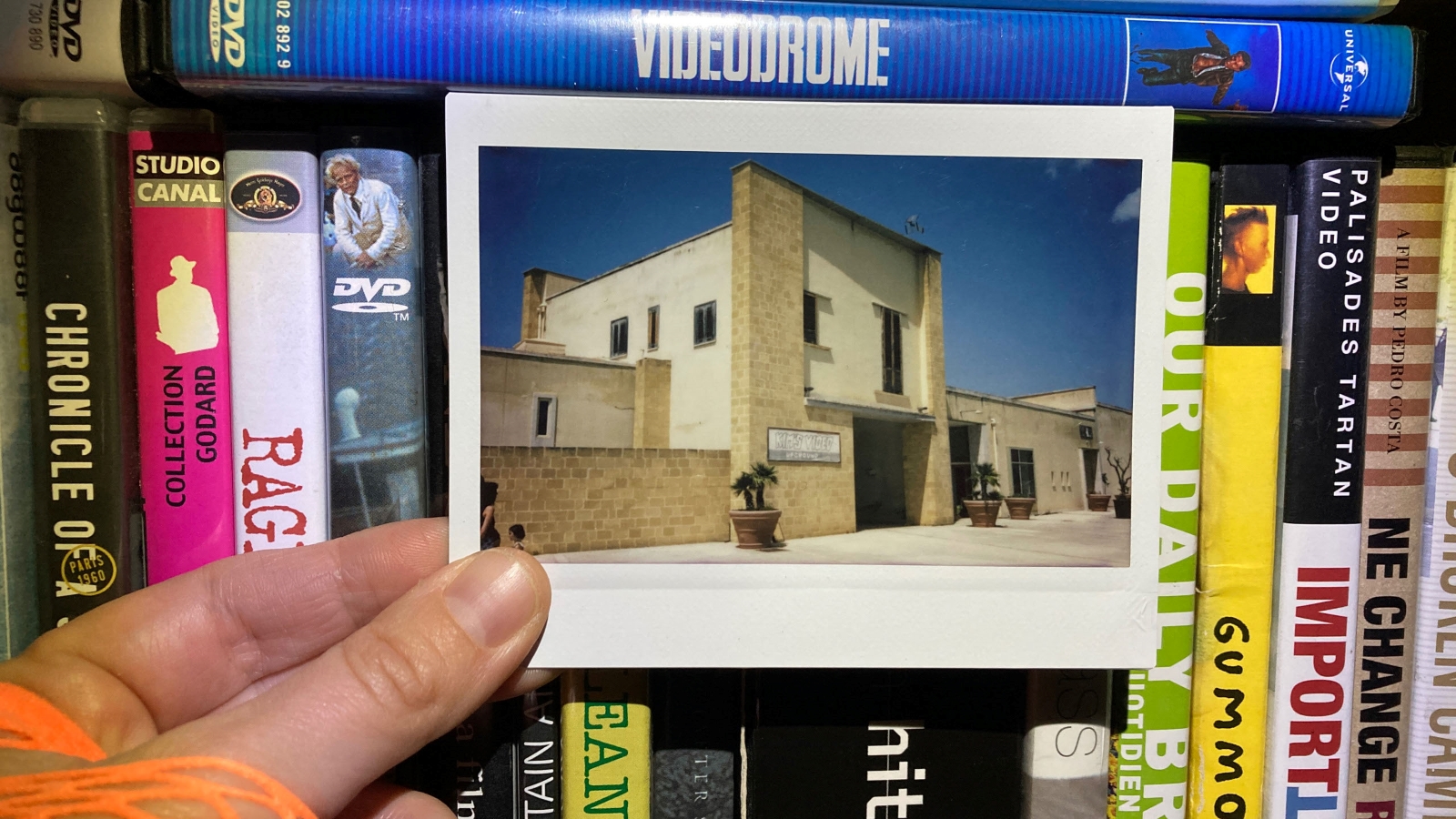Kim’s Video
(US/UK/France, 80 min.)
Dir. Ashley Sabin, David Redmon
Programme: Next (World Premiere)
If the VHS tape is the trash of Hollywood history, then Kim’s Video hordes a treasure trove cinematic garbage. Directors Ashley Sabin and David Redmon pay homage to the value of physical media and the mania with which cinephiles preserve old favourites. Kim’s Video follows Redmon as he embarks on a Quixotic quest to rent a movie—any movie!—from the once venerated New York videostore that housed over 55,000 titles in its heyday. Film buffs from all over the Big Apple share memories of Kim’s Video. They recall it as a cinephile’s dream. Past members include the Coen Brothers, who racked up a late-fee bill of $600 and never settled it.
However, as with most movie stores in the age of streamers, the institution closed. As Redmon dives into the history of Kim’s Video to learn the whereabouts of its extensive archive, he discovers a tale that is far stranger than any of the obscure titles housed in the store’s hallowed collection. The hunt for his video rental spirals into an international caper peppered with Sicilian mob ties and cameos by everyone’s favourite filmmakers. (Or people playing them in cheesy masks.) This fun and offbeat documentary should delight film geeks with its salute to physical media. Kim’s Video seems destined for cult status.
A Slice of Film/Video History
Sabin and Redmon assemble a rogue’s gallery of castmates from Kim’s Video. Former store clerks include super-cool indie filmmakers like Robert Greene and Alex Ross Perry. They dish about the history of Kim’s Video, which actually yields a touching fable of the American dream. The story tells of entrepreneur Yongman Kim, who started out selling produce at a fruit stand, then moved to a dry-cleaning business that offered video rentals on the side. Eventually, the popularity of home video yielded a lucrative business and Kim became the indie video king of NYC.
The film features an impressive amount of archival footage that tours Kim’s Video. The nuggets show just how much film geeks savoured this three-floor mecca of movies. Clerks and former members recall how Kim scoured the world for offbeat and obscure titles. They tell Redmon how he commissioned trips to film festivals and cold-called embassies for movies. Part of Kim’s Video’s novelty is the owner’s brazenness. His employees laugh as they remember how Kim would produce his own copies of rare gems when there was no means to procure them legally. Cue a revolving door of federal agents who cracked down on piracy, yet Kim kept feeding the market with his supply.
Redmon learns how the closure went down, though. Kim solicited proposals from institutions that would agree to house his archive in its entirety. When he hears that the winning bid randomly went to the town of Salemi, Italy, and that part of the deal pledged free rentals to Kim’s Video members, he hops a plan to Europe. From there, the story just gets weirder.
All’s Fair Use in Love and War
Kim’s Video follows Redmon’s trip down the rabbit hole as he discovers a story so odd one could only believe it in a movie. The doc draws upon Redmon’s encyclopedic knowledge of movies, both in form and content. Film references whiz by as he likens aspects of his journey to La Dolce Vita and Citizen Kane. For every elusive Rosebud, though, there are bits of arcana that even hardcore film nerds won’t recognize. With clip upon clip sourced from the treasure trove of titles, and snippets generally looking like they were sourced from the crappiest copies of copies of movies, Kim’s Video offers a reminder of how much film history is lost to the internet age. Kim’s Video harkens back to the thrilling experience of shuffling through spines at the video store. Curation of this sort just doesn’t exist on streamers.
Moreover, Redmon’s humorously reference-laden script offers a playbook in fair use for archives. With lines and pick-ups tailored to everything from obscure B-movies to recent studio favourites, Kim’s Video offers a case study in archival usage for anyone looking to navigate the nitpicky distributors. It’s very funny how the film fudges fair use through the directors’ intimate knowledge of movies.
A Documentary Crime Caper
The film also illustrates quite beautifully how it’s a crime to disrespect physical media. Housing one’s movies and keeping them away from mould and moisture is a must. Redmon takes this practice quite seriously as Kim’s Video evolves into a zany true crime caper. The daring do at the heart of the film shows the lengths to which geeks will go for love.
Sabin and Redmon capture their madcap odyssey with a ramshackle spirit that evokes the energy of early late-1990s/early-2000s digital cinema. Kim’s Video looks like an old VHS favourite that’s been rewatched, rewound, and passed along between fellow cinephiles. It’s in good company with docs like Raiders! that speak to the heart of the unabashed love for movies. This kind of movie admittedly caters to a specific viewer, but audiences with an affinity for physical media will appreciate its take on the archive and its responsibility in preserving art, culture, and history. One only hopes that video stores are still around to house a well-worn copy of the documentary for years to come.













